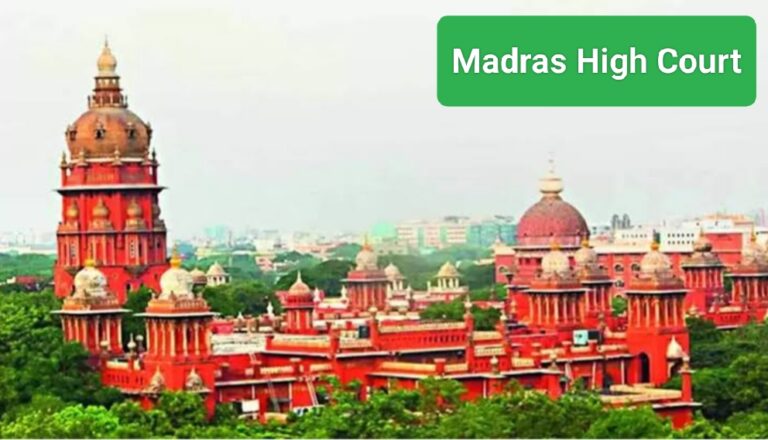The Madras High Court ruled that the department’s refusal to condone the one-day delay and the subsequent issuance of the SCN under Section 73(1) was unfair.
In a crucial judgment, the Madras High Court has excused a one-day delay in filing the GSTR-3B return and quashed the Input Tax Credit (ITC) reversal notice issued by the GST department. The ruling was made in the case of M/s. Ohm Sakthi Blue Metals vs. The Superintendent of GST & Central Excise (W.P.No.19733 of 2024 & W.M.P.No.21614 of 2024).
Case Background:
The petitioner, Ohm Sakthi Blue Metals, faced a demand notice from the GST department on January 25, 2024, for the Financial Year (FY) 2019-2020. The notice required the taxpayer to pay Rs. 3,46,866, including interest, due to a one-day delay in filing the GSTR-3B return for September 2020. The delay was attributed to challenges caused by the COVID-19 pandemic.
Petitioner’s Argument:
The taxpayer argued that the delay in filing was minimal and directly related to the disruptions caused by the pandemic. After receiving the notice, the petitioner responded on February 19, 2024, explaining the circumstances. However, despite the response, the department issued Form GST DRC-01A on March 22, 2024, demanding the same tax amount. They also stipulated that if the tax was not paid by April 5, 2024, a Show Cause Notice (SCN) under Section 73(1) of the GST Act for ITC reversal would follow.
Writ Petition Filed:
Dissatisfied with the department’s actions, the petitioner filed a writ petition, contesting the constitutionality of Section 16(4) of the CGST/TNGST Act. This provision imposes strict deadlines for claiming ITC. The petitioner asserted that the one-day delay was a result of extraordinary circumstances, and Section 16(4) should be viewed as procedural rather than mandatory.
Court’s Observations:
Justice Krishnan Ramasamy, presiding over the case, noted that the delay in filing was minimal and due to the pandemic. The court observed that the GST Council, during its 53rd meeting on June 22, 2024, had proposed extending the GSTR-3B filing deadline for FY 2017-18 to FY 2020-21. The court held that this retrospective extension supported the petitioner’s argument.
Also Read: GST Slab Changes Delayed: GoM Members Hint at Lack of Consensus on Reforms
Department’s Stand:
The counsel representing the GST department argued that even a one-day delay in filing falls under the mandatory provisions of Section 16(4), and ITC cannot be availed beyond the statutory period. They urged the court to dismiss the writ petition on these grounds.
Court’s Ruling:
The Madras High Court ruled that the department’s refusal to condone the one-day delay and the subsequent issuance of the SCN under Section 73(1) was unfair. The court determined that such action was detrimental to the petitioner, especially given the unprecedented circumstances caused by COVID-19. Consequently, the court set aside the SCN and allowed the writ petition. No costs were imposed on either party.
Conclusion:
This ruling underscores the court’s view that minor delays caused by extraordinary circumstances like the pandemic deserve consideration. The decision provides relief to taxpayers facing similar situations and highlights the importance of a fair and reasonable approach by tax authorities in the wake of unavoidable delays.
READ MORE
